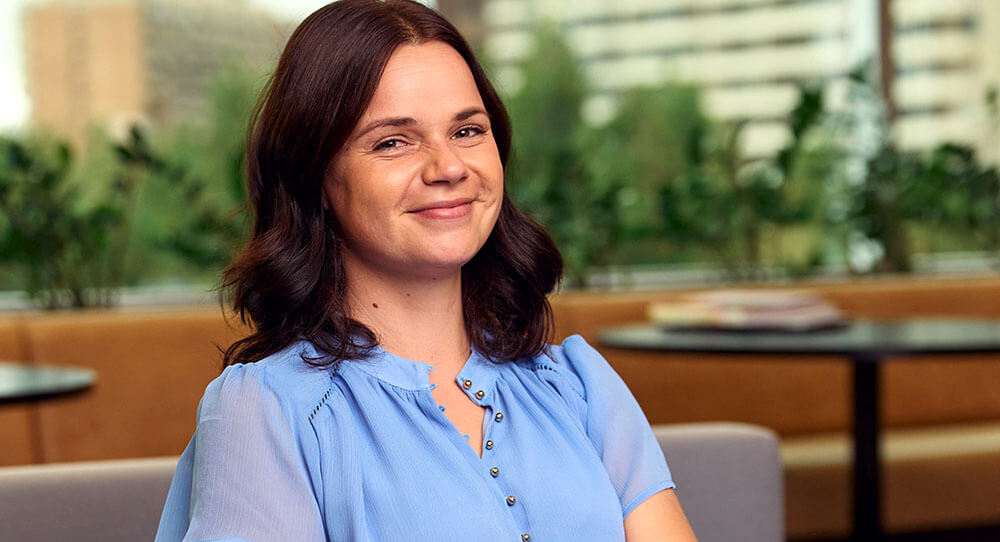Explore Psychology at ACAP
The study of psychology is all about understanding human behaviour, thought processes and emotions. A degree in psychology opens doors to a variety of career paths – not only in mental health, but also in industries like business, education and sport.
Whether you’re interested in becoming a registered psychologist, which is a six-year pathway, or you’re looking to apply psychological principles to other fields, a psychology degree offers flexibility and valuable insights into human nature that are applicable to a wide range of career paths.
Today, we’ll answer some of your frequently asked questions including, “What can you do with a psychology degree?”, and break down the range of exciting career options that lie ahead.
Let’s start with what a degree in psychology entails and what you’ll learn during your studies.

What is A PSYCHOLOGY DEGREE?
Psychology degrees explore the science of the human mind and our behaviour, covering topics like cognition, perception, mental health and social interactions.
When you study psychology, you’ll develop in-demand skills in research, critical thinking, communication and problem-solving; these skills are applicable to many professions, allowing you to follow your passions in the workforce of psychology and beyond.
In Australia, becoming a registered psychologist requires further study and supervised practice. However, once you’re equipped with an accredited qualification, many other exciting options are available outside of a typical psychology career.
What CAN YOU DO WITH A PSYCHOLOGY DEGREE?
A psychology degree can lead to careers in a range of dynamic industries, from healthcare to business and corporate settings. Keep reading to explore some of the most common and rewarding career paths available with a degree in psychology.
PSYCHOLOGY
When you think about psychology paths and the potential career options available, a psychologist is probably the first one that comes to mind.
To become a registered psychologist, you’ll need to complete one of the accredited undergraduate psychology courses in Australia such as the Bachelor of Psychological Science. This three-year study program is followed by a fourth ‘honours’ year of study, like our Bachelor of Psychological Science (Honours).
After completing your undergraduate studies, you’ll undertake postgraduate studies. This usually consists of a two-year Master of Psychology (Clinical) or the combination of both the Master of Professional Psychology and the placement-focused Graduate Diploma of Professional Psychology Practice.
For more information on how to become a psychologist in Australia including the pathway options to get you there, visit our blog post dedicated to this topic.
By completing the dedicated psychology paths outlined above, you’ll be able to register as a general psychologist in Australia. However, if you’d like to become a specialised psychologist, the Australian Psychological Society (APS) and the Psychology Board of Australia (PsyBA) require you to complete additional supervised practice called a registrar program.
Let’s take a look at a few of the specialist psychology careers endorsed by the APS and the PsyBA:
CLINICAL PSYCHOLOGIST
Clinical psychologists deliver a range of psychological services to individuals dealing with mental health conditions – from anxiety and depressive disorders to complex or high-needs conditions.
With specialised expertise in assessing, diagnosing and treating psychological issues, clinical psychologists use various techniques and therapies to create personalised treatment plans for their clients.
In addition to clinical work, they may also contribute to research, teaching, supervision and public policy.
EDUCATIONAL AND DEVELOPMENTAL PSYCHOLOGIST
Educational and developmental psychologists focus on wellbeing throughout life, particularly in relation to learning and development. Professionals in this field work in diverse environments and may hold titles like school psychologist, guidance officer, disability services officer or child and adolescent counsellor.
Their work spans individuals, couples, groups and even organisations. In educational settings, these psychologists play a key role in identifying and supporting those facing mental health challenges, psychological concerns and learning difficulties.
COMMUNITY PSYCHOLOGIST
The role of a community psychologist extends beyond traditional healthcare settings, offering ways to improve mental health by addressing social, cultural, political and environmental issues amongst communities.
They often work in not-for-profit organisations and community services to tackle important social issues such as discrimination, poverty, unemployment and homelessness.
While some community psychologists provide traditional talk therapy, many focus on driving change. They collaborate with other professionals in social work, social justice and community development to apply psychological principles in ways that create lasting social impact.
SPORT AND EXERCISE PSYCHOLOGIST
Sport and exercise psychologists examine how psychological factors influence participation in sport, exercise and physical activity, using evidence-based strategies to help clients navigate challenges and achieve personal and professional goals.
These specialists apply psychological principles to enhance performance, motivation and overall wellbeing in both competitive and everyday settings. They work across various areas including injury rehabilitation, leadership and team dynamics.
In Australia, sport and exercise psychologists play a vital role in elite sports, working closely with national teams and institutes. Their expertise is recognised globally, with Australian professionals contributing to international sporting success, including Olympic preparation.
FORENSIC PSYCHOLOGIST
The responsibilities of a forensic psychologist can be wide-ranging. Working within the criminal justice system, they provide assessments, profiling and rehabilitation strategies to improve the functions of the legal system.
Forensic psychologists may deliver evidence as expert witnesses in civil, criminal and family courts, and often assist in cases covering compensation, guardianship, parole and appeals. They also offer consultation in areas such as trial preparation, mediation, police investigations, crime prevention, child protection and more.
While forensic psychologists typically work ‘behind the scenes’, they may also provide psychological counselling to those affected by divorce, substance abuse and crime.

HUMAN RESOURCES
When it comes to answering, “What can you do with a psychology degree?”, outside of becoming a psychologist, exploring human resources is a common answer.
A degree in psychology equips HR professionals with a deep understanding of human behaviour, motivation and decision-making – critical aspects of effective people management. Psychological principles help in workforce planning, recruitment and selection by enabling HR professionals to assess candidates’ cognitive abilities, personality traits and job fit using evidence-based techniques like psychometric testing and behavioural interviews.
In learning and development, psychology offers insights into how people acquire skills, stay motivated and adapt to change. HR professionals with a psychology background can design effective training programs, support leadership development and implement strategies to enhance employee performance and career growth. Understanding psychological factors also helps in coaching, mentoring and creating work environments that promote productivity and engagement.
Psychology is particularly valuable in organisational areas like workplace wellbeing, change management and employee development. HR professionals apply psychological research to develop mental health initiatives, help employees manage stress and create policies that improve work-life balance. Additionally, knowledge of social and organisational psychology helps in shaping company culture, handling workplace dynamics and driving positive change that benefits both employees and the business.
MARKETING AND COMMUNICATIONS
In a marketing setting, a qualification in psychology is highly valuable as it provides insight into consumer behaviour, decision-making and motivation. Psychological principles help marketers conduct data analysis and research to understand target audiences, predict consumer trends and develop effective advertising strategies that resonate with people on a deeper level.
In branding and communication, psychology plays a key role in shaping how businesses present themselves to the public. By understanding consumer perceptions and emotions, marketers can align an organisation’s values, culture and messaging to create a strong, consistent brand identity. This ensures that marketing efforts connect authentically with customers and build long-term brand loyalty.
Psychology also helps refine business processes and systems by applying consumer behaviour insights to improve customer experiences. From designing user-friendly websites to creating persuasive ad campaigns, marketers with a psychology background use evidence-based strategies to influence purchasing decisions and enhance engagement across various platforms.
SOCIAL SERVICES
When it comes to careers in psychology, working in social services is possibly one of the most fulfilling. A degree in psychology equips social services professionals with the skills to support individuals and communities facing mental health challenges, disability and social disadvantage.
Psychological principles can be applied to understanding behaviour, developing intervention strategies and providing effective support in areas like mental health, youth work and disability support.
In community programs, psychology plays a key role in designing initiatives that promote wellbeing, social inclusion and resilience. Using psychological research to create and implement support programs tailored to diverse populations, these professionals ensure that interventions are evidence-based and effective.
Whether working in mental health, youth services or disability support, psychology graduates bring valuable expertise in assessment, communication and behaviour management strategies. Their ability to apply psychological insights helps individuals navigate challenges, access resources and improve their overall quality of life.

READY TO STUDY PSYCHOLOGY?
A degree in psychology is more than just a pathway to becoming a psychologist – it’s a gateway to a diverse range of careers where understanding human behaviour is key.
Whether you choose to work in mental health, business, sports or community services, studying one of ACAP’s psychology degrees will equip you with valuable skills that are in demand across many industries.
Still wondering, “What can you do with a psychology degree?”. Our Course Advisors are here to help! Book a call with our team to chat through your course options, possible career paths and more.

